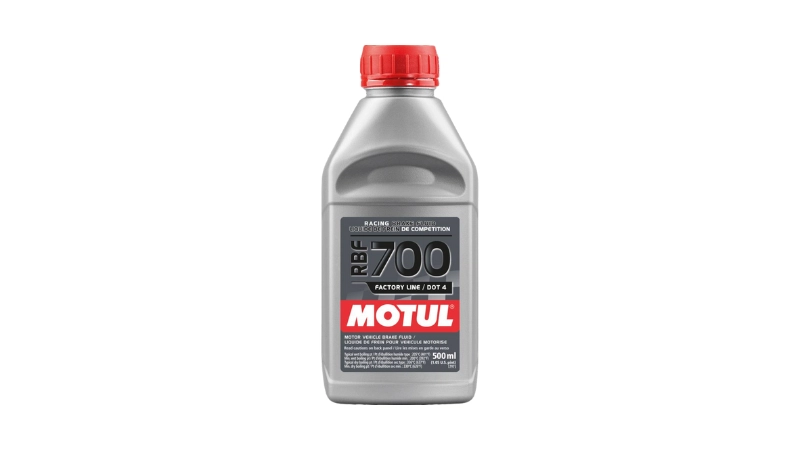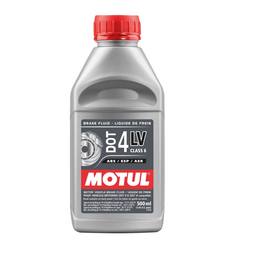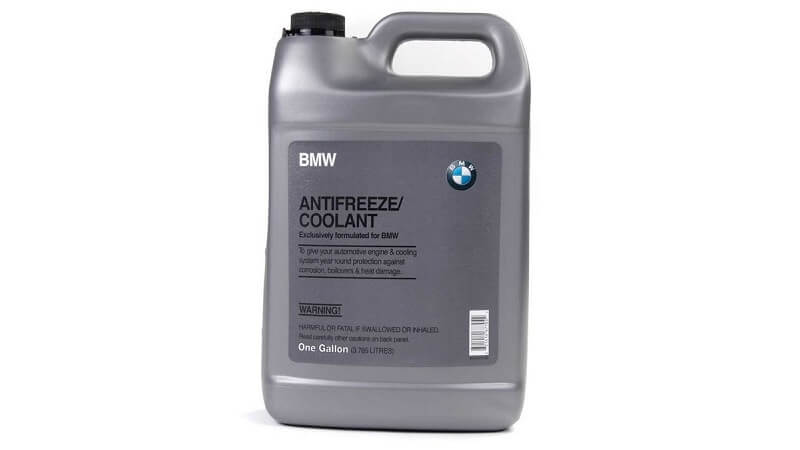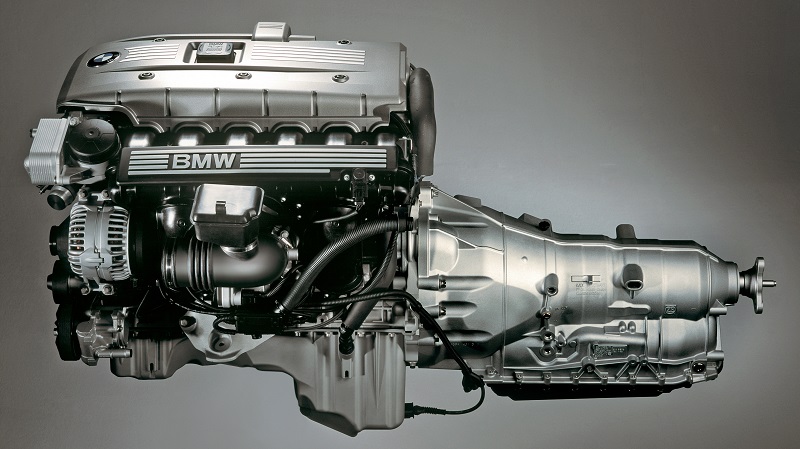Have you ever wondered what keeps your BMW’s braking system performing at its peak? It’s not just the high-quality brake pads or the precision-engineered calipers — your brake fluid also plays an equally crucial role. Ensuring your brake fluid is in top condition is vital for your BMW’s safety and performance. Unlike engine oil or coolant, brake fluid is often overlooked, but neglecting it can compromise your vehicle’s braking efficiency and safety.
BMW vehicles are renowned for their high performance and precision engineering. Following the recommendations for all maintenance aspects, including brake fluid, is crucial to ensure they run smoothly and stop safely. Using the right brake fluid and maintaining it properly can prevent a host of problems, from decreased braking efficiency to severe brake system failures.
In this ultimate guide, we’ll cover everything you need about BMW brake fluid. From understanding its function and the different types available, to learning about BMW’s specific requirements and the importance of regular maintenance, this guide aims to equip you with all the knowledge you need to keep your BMW’s braking system in top shape.
Whether you’re a seasoned BMW owner or new to the brand, this guide will equip you to ensure your BMW’s braking system remains in top condition.
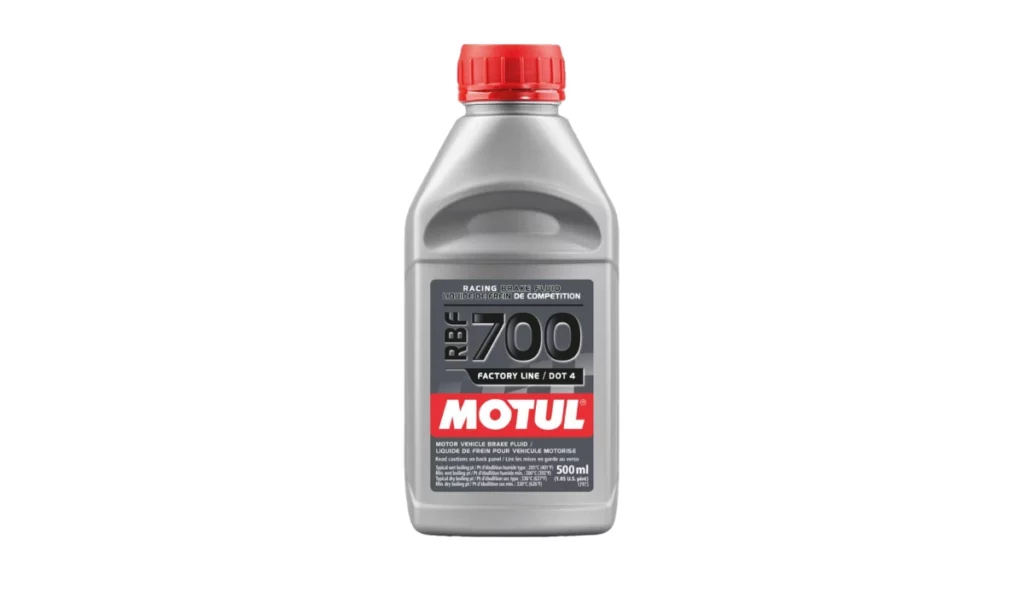
Understanding Brake Fluid
Understanding brake fluid is fundamental to maintaining your BMW’s braking system. Brake fluid acts as a hydraulic fluid, transmitting the force you apply to the brake pedal directly to the brake components. This section will explain what brake fluid is, the available types, and why it is crucial for your vehicle’s braking performance.
What is Brake Fluid?
A brake fluid is a hydraulic fluid that transfers force into pressure, amplifying braking force from your foot to the brake rotors. It operates under high temperatures and pressure conditions, ensuring the brake components work efficiently and reliably. The braking system would not function correctly without brake fluid, leading to unsafe driving conditions.
Brake fluid needs certain properties, such as high boiling points and low compressibility, to withstand extreme operating conditions. These properties ensure that the force is transmitted without delay or loss of efficiency when you press the brake pedal.
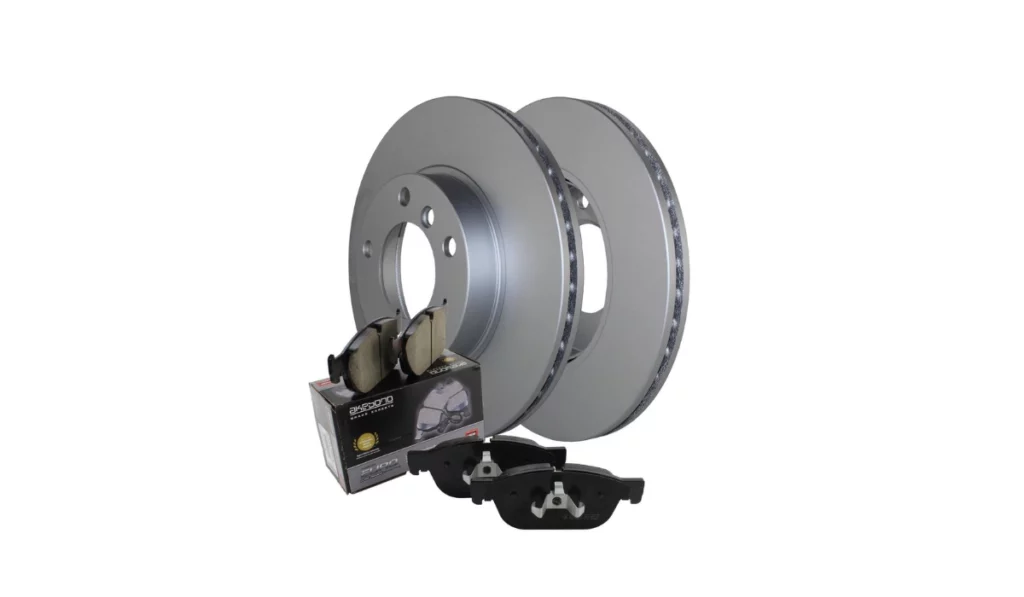
Types of Brake Fluid
Brake fluids are classified based on their chemical composition and boiling points. The most common types are:
- DOT 3 — Glycol-based, used in many vehicles, has a moderate boiling point.
- DOT 4 — This has a higher boiling point than DOT 3 and is recommended for high-performance vehicles like BMWs. It provides better performance under stress.
- DOT 5 — Silicone-based, does not absorb water, and is not typically used in BMWs because it is incompatible with ABS systems. Not unless your BMW has a completely redesigned braking system and is purely used on the track.
- DOT 5.1 — Glycol-based, has a high boiling point, is compatible with DOT 3 and DOT 4, offering superior performance.
The choice of brake fluid depends on the vehicle’s specifications and the driving conditions. DOT 4 is typically recommended for BMWs due to its superior performance under high temperatures and stress.
Can I Mix Different Types of Brake Fluid?
While DOT 3, DOT 4, and DOT 5.1 brake fluids are glycol-based and cross-compatible, it’s best to stick to one type to ensure brake fluid quality and optimal performance. Mixing these with silicone-based DOT 5 fluid can cause severe damage to the braking system. Consult your BMW’s owner manual to determine what brake fluid your BMW needs.
Importance of Brake Fluid in Braking Systems
Brake fluid plays a crucial role in any vehicle’s braking system. It ensures that the force you apply to the brake pedal is transmitted effectively to the brake pads, allowing you to slow down or stop your vehicle. The brake fluid must maintain its properties under varying temperatures and conditions to provide consistent performance.
The efficiency of brake fluid directly impacts braking performance. Over time, brake fluid can absorb moisture from the air, lowering its boiling point and affecting its ability to transmit force. This can lead to brake fluid fade, where the brakes become less effective, especially under high-stress conditions like downhill driving or emergency stops.
BMW’s Recommended Brake Fluids
BMW vehicles are engineered for high performance, and the type of brake fluid used can significantly impact their braking efficiency and safety. This section will cover BMW’s brake fluid requirements, the importance of compatibility, and recommended brands and products to ensure your BMW’s braking system operates at its best.
Specific BMW Brake Fluid Requirements
BMW specifies certain types of brake fluids to meet its high-performance standards. Using the correct brake fluid ensures your BMW’s braking system functions optimally, providing reliable and consistent performance.
BMW typically recommends using DOT 4 brake fluid. This type of fluid has a higher boiling point than DOT 3, making it better suited for BMW vehicles’ high-performance braking systems. Using the wrong brake fluid can reduce braking efficiency and potentially damage the braking system components.
Compatibility with Other Brake Fluids
It’s crucial to use the correct type of brake fluid for your BMW. While DOT 3, DOT 4, and DOT 5.1 brake fluids are glycol-based and generally cross-compatible, it is recommended to stick to one type to ensure optimal performance and avoid any potential issues.
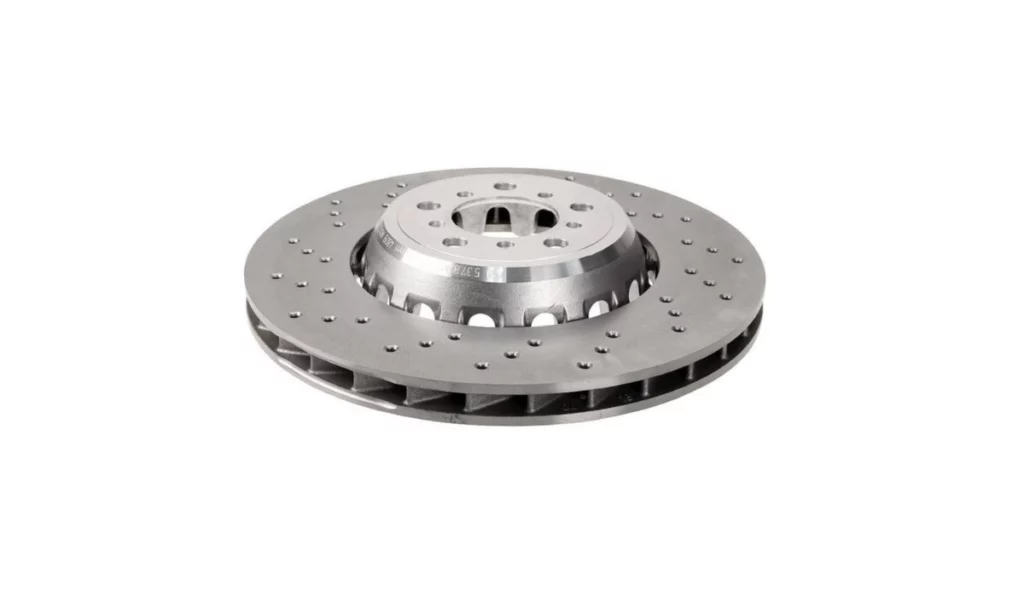
However, mixing glycol-based fluids (DOT 3, 4, and 5.1) with silicone-based DOT 5 brake fluid can severely damage the braking system. Always consult your BMW’s owner manual to ensure you use the correct brake fluid and avoid mixing different types that could harm your vehicle’s performance.
Recommended Brands and Products
Several brands manufacture brake fluids that meet BMW’s standards. Some highly recommended options include:
Genuine BMW DOT4 Brake Fluid — Specifically designed for BMW vehicles, ensuring optimal performance and compatibility.
RBF700 Motul DOT4 Brake Fluid 111257 — Known for its high boiling point and excellent performance under stress, making it a popular choice for BMW owners.
Low Viscosity Motul DOT4 Brake Fluid 111254 — Offers superior performance, especially under high-temperature conditions, suitable for high-performance driving and racing.
Motul DOT5.1 Brake Fluid 100951 — Provides superior performance with a high boiling point, ideal for high-performance and racing applications.
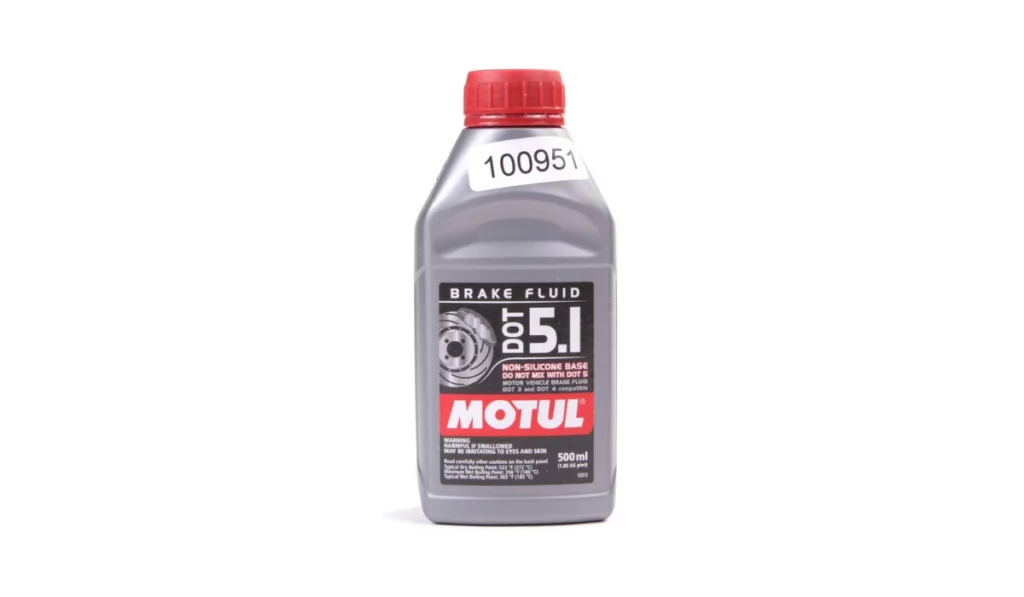
Using high-quality brake fluids ensures that your BMW’s braking system performs reliably and efficiently, providing you with the safety and performance you expect from your vehicle.
Genuine BMW Parts with Fantastic Online Deals
At Bimmers.com, explore a broad collection of genuine BMW and OEM parts with unbeatable online deals. We aim to provide every BMW lover with authentic auto parts, cutting down on vehicle maintenance costs.
Our carefully selected range is tailored to your BMW’s specific requirements, ensuring adherence to OEM quality standards. We offer a variety of parts, from essential engine components to maintenance items, ensuring your vehicle runs smoothly and efficiently.
Choosing Bimmers.com means enjoying considerable savings without compromising quality, making it an excellent choice for BMW DIY enthusiasts who value both affordability and high standards.
Our extensive inventory, easy-to-navigate website, and dedicated customer service ensure you find exactly what you need. Whether handling routine maintenance or major upgrades, Bimmers.com is your ultimate source.
Why Regular Brake Fluid Maintenance is Crucial
Maintaining the brake fluid in your BMW is essential for optimal braking performance and safety, and regular maintenance helps prevent issues such as reduced braking efficiency and system corrosion. This section explains the importance of regular brake fluid maintenance, its impact on your vehicle’s braking performance, and how often you should change the brake fluid.
Impact on Braking Performance
Over time, brake fluid can absorb moisture from the atmosphere, lowering its boiling point. This can cause vapor lock, where vapor forms in the braking system, reducing braking efficiency. Regular maintenance and brake fluid replacement are essential to prevent this and ensure optimal braking performance.
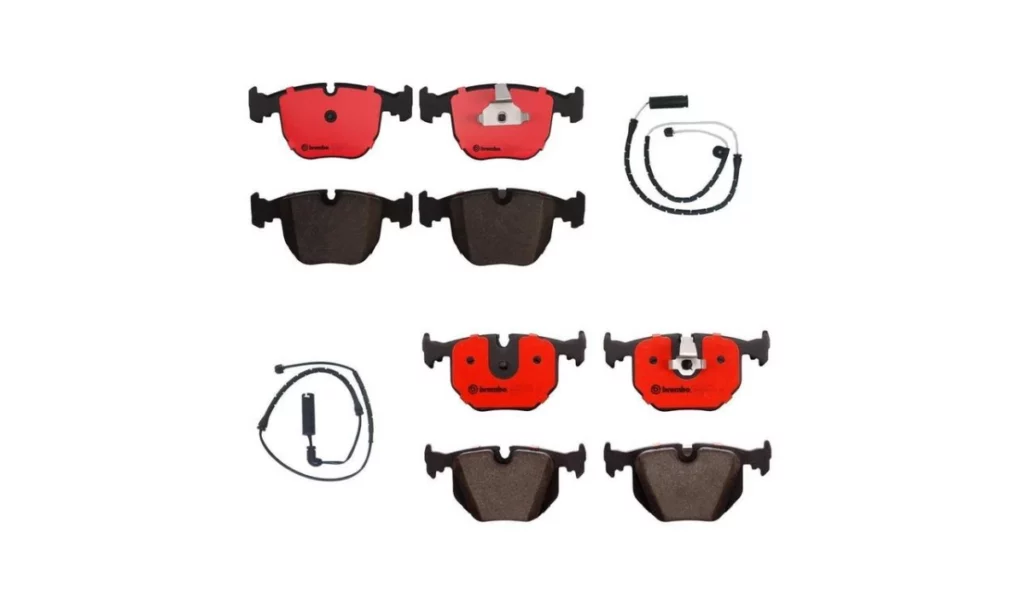
Risks of Neglecting Brake Fluid Maintenance
Neglecting brake fluid maintenance can result in reduced braking performance, increased stopping distances, and even brake failure. Moisture in the brake fluid can also lead to corrosion of the braking system components, causing further damage and potential safety hazards. Regular checks and replacements are essential for maintaining the integrity of your braking system.
How Often Should You Change Your Brake Fluid?
BMW typically recommends replacing the brake fluid every two years to ensure optimal performance and safety. Regular replacement is necessary to prevent moisture buildup and contamination, which can degrade the fluid’s effectiveness.
While this interval is generally sufficient, adhering strictly to this schedule is crucial, especially if you drive in high-stress conditions such as mountainous areas or heavy traffic. Maintaining this routine helps avoid potential issues and keeps your braking system in top condition.
Signs That Your BMW Needs Brake Fluid Replacement
Recognizing the signs that your brake fluid needs replacing is crucial for maintaining your BMW’s braking system. Early detection of issues can prevent more severe problems and ensure your vehicle remains safe to drive. This section highlights common symptoms of old or contaminated brake fluid and provides diagnostic tips for identifying these issues.
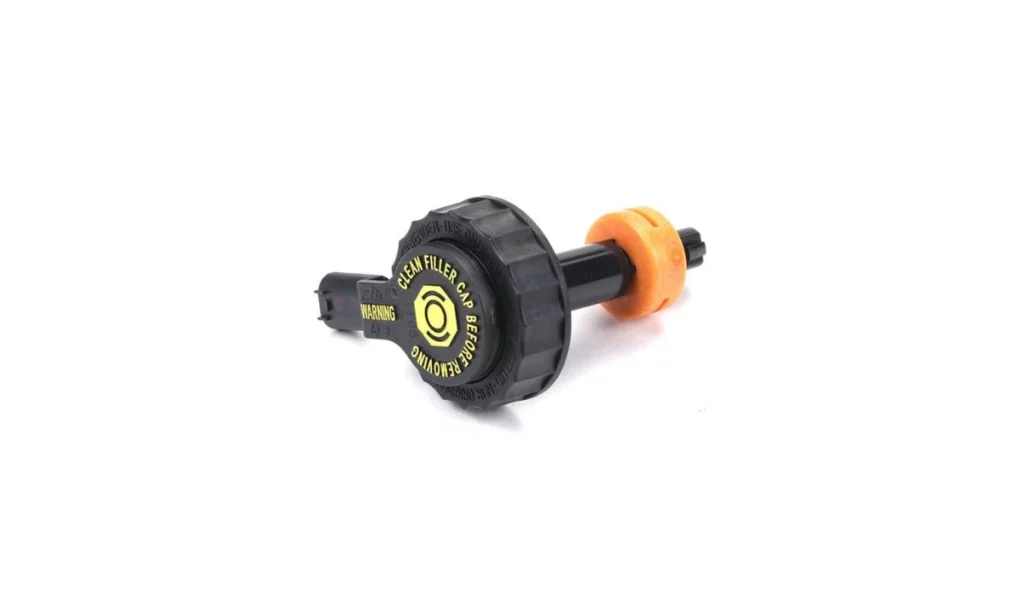
Common Symptoms of Old or Contaminated Brake Fluid
Spongy or Soft Brake Pedal — If your brake pedal feels spongy or soft when you press it, this can indicate that there is air in the brake lines or that the brake fluid has absorbed too much moisture.
Increased Stopping Distances — If you notice that your vehicle takes longer to stop, it could be a sign that your brake fluid needs replacing.
ABS Warning Light — If the ABS warning light on your dashboard comes on, this can indicate a problem with your brake fluid or the ABS system.
Dark or Dirty Brake Fluid — Brake fluid should be clear or light yellow. If it appears dark or dirty, it’s time for a replacement.
Diagnostic Tips and Checks
Regularly inspecting your brake fluid for clarity and color is a simple yet effective way to ensure it’s in good condition. If you notice any of the symptoms mentioned above, addressing them promptly is essential to avoid further issues.
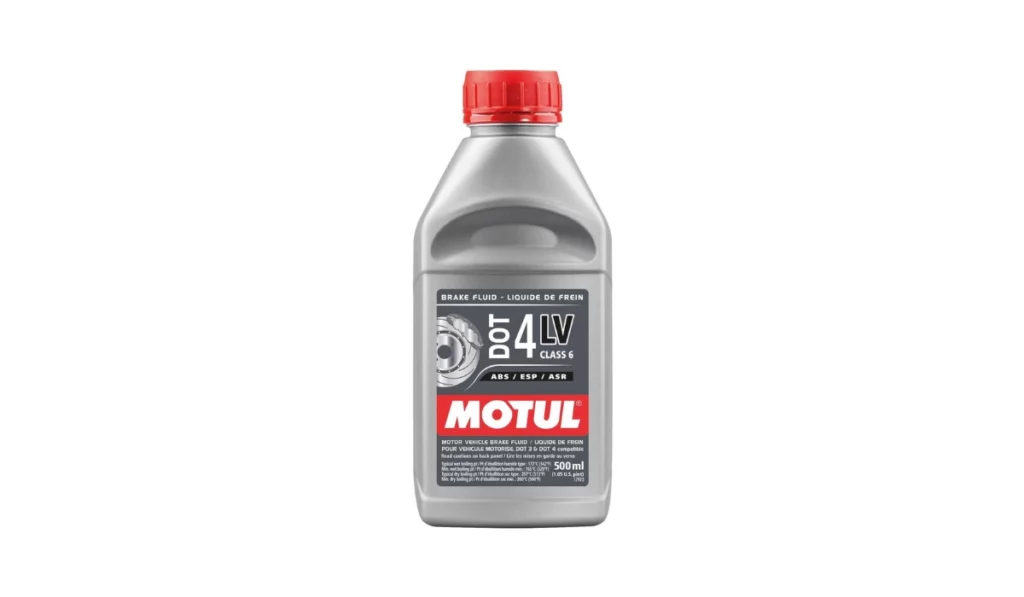
How to Check Your BMW’s Brake Fluid Level
Regularly checking your BMW’s brake fluid level is a straightforward yet vital part of maintaining your vehicle’s braking system. This section provides a step-by-step guide on how to check your brake fluid level, the tools you’ll need, and safety precautions to take during the process.
Tools You’ll Need
- Flashlight
- Clean cloth
- Gloves
- Safety goggles
- Brake fluid tester
Safety Precautions
- Avoid spilling brake fluid on paintwork; it can cause damage.
- Use only the recommended type of brake fluid for your BMW.
Step-by-Step Guide
Locate the Brake Fluid Reservoir — The brake fluid reservoir is usually found near the back of the engine bay. Consult your owner’s manual if you have trouble locating it.
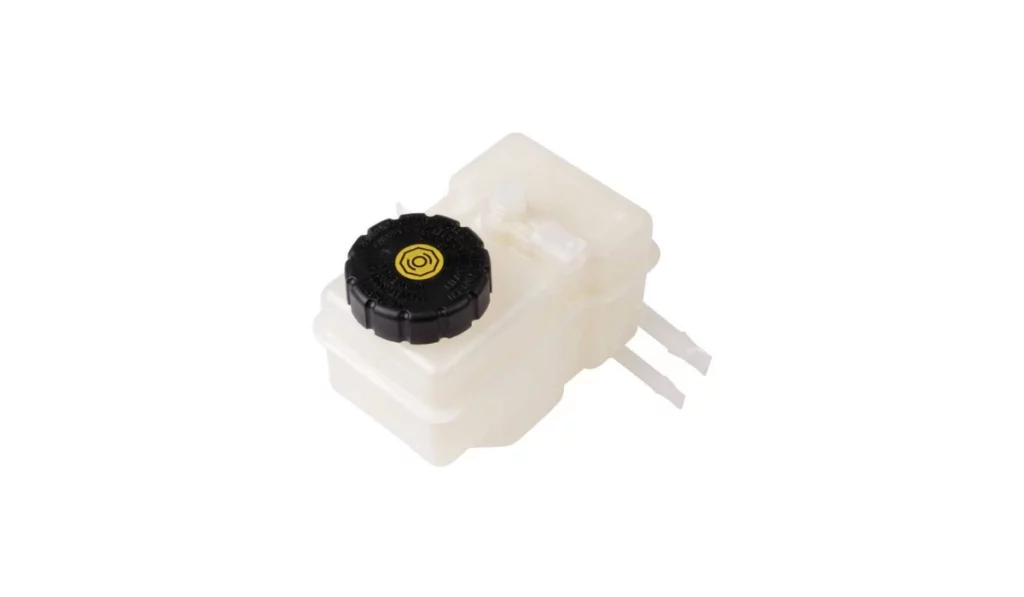
Check the Fluid Level — Ensure the fluid is between the “MIN” and “MAX” marks on the reservoir. If the level is low, it may indicate a leak in the system or worn-down brake components such as pads and discs. A brake fluid tester is also recommended to check the moisture content in the brake fluid. High moisture content can degrade the fluid’s performance and necessitate replacement.
Inspect the Fluid Condition — Check for clarity and color. Clear or light yellow fluid is healthy, while dark or cloudy fluid indicates contamination.
How does brake fluid get low without a leak?
Brake fluid can get low without a leak due to brake components’ natural wear, such as brake pads and discs. As these parts wear down, the brake pistons extend further, requiring more fluid to fill the system. Regularly check your brake fluid level and component wear to ensure optimal braking performance and safety.
DIY Brake Fluid Replacement for BMWs
Replacing your BMW’s brake fluid can be a rewarding and cost-effective way to maintain your vehicle. This section provides a detailed DIY guide for brake fluid replacement, including necessary tools and materials, safety tips, and common mistakes to avoid.
Additional Tools You’ll Need
Aside from the tools you have used and steps you had previously done while checking the brake fluid, here are the other tools you’ll need:
- Hydraulic jack
- Jack stand
- Lug wrench
- Turkey baster or brake fluid siphon
- Clear tubing
- A catch container
- Wrenches (usually 8mm or 10mm for bleeder screws)
- Brake cleaner spray
Detailed DIY Guide
Lift the Car — Use a jack to lift the car and secure it with jack stands. Ensure the vehicle is stable before proceeding. Use the right brake fluid that meets BMW specifications.
Remove the Wheels — Use a lug wrench to remove the wheels, giving you access to the brake calipers and bleeder screws.
Remove Old Fluid from Reservoir — Open the brake fluid reservoir and use a turkey baster or siphon to remove as much old fluid as possible. Refill the reservoir with fresh brake fluid.
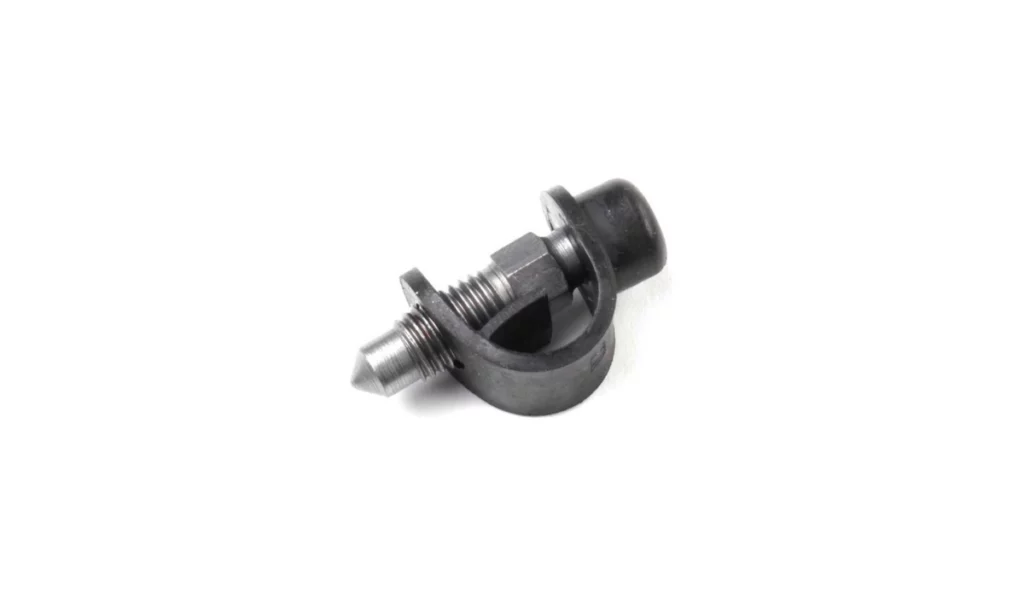
Attach Clear Tubing to Bleeder Screw — Start with the wheel farthest from the master cylinder (usually the passenger rear). Attach clear tubing to the bleeder screw and place the other end in a catch container.
Bleed the Brakes
- Have a helper press the brake pedal and hold it down.
- Loosen the bleeder screw to let old fluid and air escape through the tubing. Don’t let the reservoir run dry during the bleeding process to avoid air entering the brake lines.
- Tighten the bleeder screw before the helper releases the pedal.
- Repeat until clean fluid emerges, ensuring the reservoir remains topped off with fresh fluid.
- Consistency is key; ensure a steady pressure when bleeding the brakes to avoid introducing air into the system.
Move to the Next Wheel — Repeat the bleeding process for each wheel, moving from the farthest to the closest wheel to the master cylinder. Don’t let the reservoir run dry during the bleeding process to avoid air entering the brake lines.
Check the Fluid Level — Once all wheels are bled, check the brake fluid level in the reservoir and top it off if necessary. Ensure the reservoir cap is securely placed. Check for leaks around the bleeder screws and fittings to ensure everything is secure.

Reinstall Wheels and Lower the Car—Reinstall the wheels and use the lug wrench to tighten the lug nuts to specifications. Lower the car using the jack and remove the jack stands. Test your brakes by pumping the brake pedal a few times to ensure they feel firm.
Clean Up — Dispose of the old brake fluid properly. Wipe down any spilled fluid with shop towels and use brake cleaner spray to clean the area. Test the brakes at low speed to ensure they are working correctly.
By following these steps and tips, you can successfully change your BMW’s brake fluid, ensuring your braking system remains efficient and safe.
What Happens if I Don’t Change My Brake Fluid?
Neglecting to change your brake fluid can drastically reduce braking performance, lead to longer stopping distances, and even cause complete brake failure. Moisture buildup can cause corrosion in the braking system, leading to expensive repairs and severe safety hazards. Regular brake fluid maintenance is essential to avoid these dangerous and costly issues.
Maintaining Optimal Brake Performance
Ensuring your BMW’s brake system is in top condition is crucial for safety and performance. Regular inspections and complementary maintenance can prevent issues and extend the lifespan of your braking components. Here’s how to maintain optimal brake performance for your BMW.
Regular Inspections
Routine brake system checks are essential for detecting potential problems early and ensuring everything functions correctly. Inspecting your brakes at least once a year or more frequently is recommended if you drive in demanding conditions.
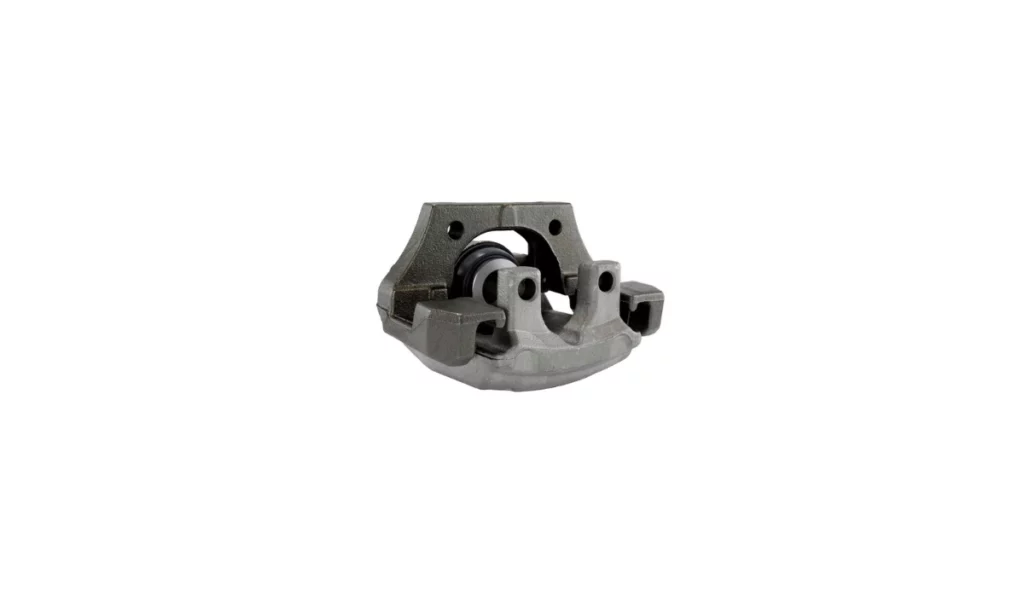
During these inspections, you must check the brake pads, rotors, calipers, and brake fluid levels. Regular inspections help identify wear and tear, leaks, or other issues that could compromise your braking system’s effectiveness. Addressing these problems early can prevent more significant, costly repairs down the line and ensure your safety on the road.
Complementary Maintenance Tips
Check Brake Pads and Rotors — Regularly inspecting your brake pads and rotors is essential. Brake pads should be replaced when worn down to about 3mm to 4mm to prevent damage to the rotors. Rotors should be smooth and free of deep grooves or scoring. They must be resurfaced or replaced if they are unevenly worn or cracked.
Monitor Brake Fluid Levels — Monitor your brake fluid levels and condition. As previously mentioned, the fluid should be clear to light yellow. Regularly check for signs of contamination or low fluid levels and top off or replace the fluid as necessary.
Listen for Unusual Noises — Pay attention to any unusual braking sounds, such as squealing, grinding, or clicking. These noises can indicate issues like worn brake pads or damaged components that need attention.
Feel for Brake Performance Changes — Notice any changes in brake pedal feel or braking performance. A spongy or soft pedal, longer stopping distances, or a pulling sensation when braking are signs that your brake system needs servicing.
Maintain Clean Components — Keep your braking components clean to prevent dust and debris buildup. Use brake cleaner spray to periodically clean the calipers, rotors, and other parts.
Follow Manufacturer’s Recommendations — Always adhere to BMW’s maintenance schedule and use the recommended parts and fluids. Following these guidelines ensures your braking system performs optimally and remains reliable.
By incorporating these regular inspections and complementary maintenance tips into your routine, you can maintain the optimal performance of your BMW’s braking system. Staying proactive about brake maintenance ensures your vehicle’s safety and enhances your driving experience.
Get the Best Brake Fluid for Your BMW at Bimmers.com
To ensure your BMW’s braking system remains in top condition, it’s essential to use high-quality brake fluid and perform regular maintenance. At Bimmers.com, we offer a wide selection of premium brake fluids specifically designed to meet BMW’s stringent standards.
Our knowledgeable customer service can help you choose the right brake fluid for your vehicle, ensuring optimal performance and safety. Don’t risk the integrity of your braking system with subpar products. Visit Bimmers.com today to browse our extensive inventory of genuine BMW parts and accessories.
Trust Bimmers.com for all your BMW maintenance needs and keep your vehicle performing at its best.

